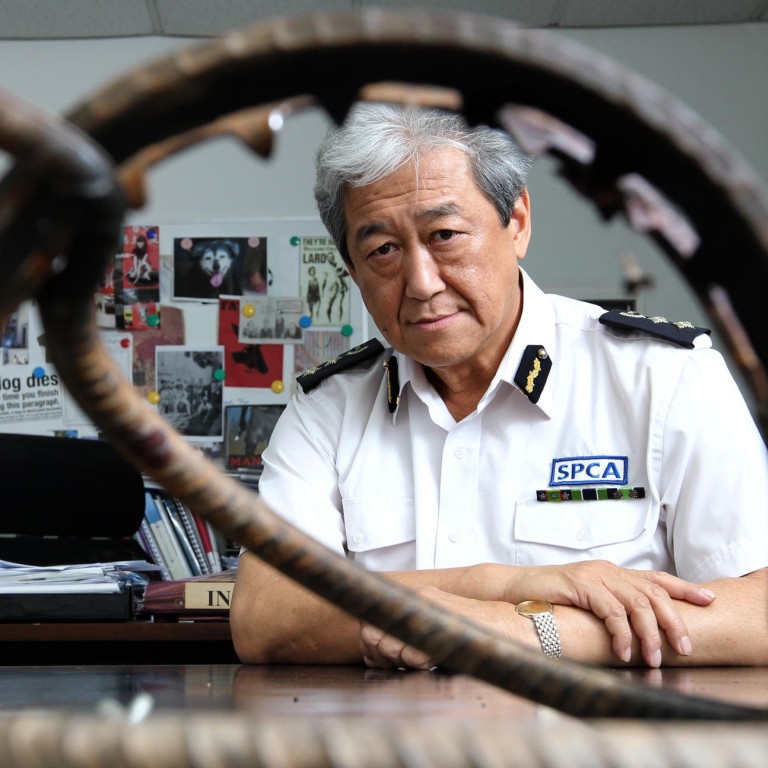
SPCA steps up animal trap patrols
Primitive animal traps found across the city - including in Mid-Levels - have severely injured at least eight stray and pet dogs in the past two years.
Three were found in such pain, with a leg crushed in the jaws of the rusty steel traps, that they had to be put down by the Society for the Prevention of Cruelty to Animals (SPCA).
Since 2009 only one person has been fined - the penalty was HK$1,600 - for setting animal traps illegally under the Wild Animals Protection Ordinance.
But the SPCA said it would continue to step up inspections on hillsides and in the countryside to clamp down on the cruel and unlawful practice.
Tony Ho Tse-tong, chief officer of the SPCA Inspectorate, said he thought the traps were put out by people who wanted to eat wild animals.
One of the traps was found on a hillside near Conduit Road in Mid-Levels in November 2010. Others have been found in the countryside in Sha Tau Kok, Tuen Mun, Tai Po, Sai Kung and Yam O on Lantau Island.
The SPCA is alarmed by the gradual increase in the number of traps being reported, from four last year to six in the first eight months of this year.
In the 11 cases since November 2010, a total of eight dogs were trapped, with three having to be put down.
One stray dog managed to flee with a trap attached to its leg, and was not found. Without treatment it would probably have died, Ho said. The rest were lucky enough to survive and have been returned to their owners or sent to new homes by the SPCA.
The latest case was in Tai Po on August 27, when a vet had to put the dog down because of its severe injuries.
Kadoorie Farm has also come across wild animals, including pangolin, red muntjak and barking deer that have been hurt by illegal traps, said SPCA executive director, Sandy Macalister.
The Agriculture, Fisheries and Conservation Department has received 62 reports of animal traps since 2009, which injured one person and seven animals.
"It is a very cruel way to trap animals," Ho said. "Those dogs were in severe pain and kept bleeding when their limbs were trapped between the sharp teeth of the rusty bars.
"We are outraged by this inhumane practice and will continue to beef up our inspections across the city."
He thinks the rise in numbers was partly due to growing public awareness of animal welfare, which has made people more willing to report cruelty cases.
"In the past, people might simply have walked past when they saw a trap. But now they immediately report it to us, especially when they see some animals have been hurt," Ho said.
Setting traps for animals is an offence under the Wild Animals Protection Ordinance, carrying a penalty of one year in jail and a fine of HK$100,000. Cases of cruelty to animals can be punished with a three-year jail term and HK$200,000 fine under the Prevention of Cruelty to Animals Ordinance.

